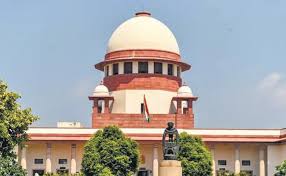
The Supreme Court on Friday issued a directive to all states and high courts across India to regularise the services of court managers currently hired on an ad-hoc basis. The court ordered the formulation or amendment of rules governing the recruitment and service conditions of court managers, using the Assam Rules of 2018 as a model, with submission of these rules to the respective state governments within three months.
A bench comprising Chief Justice of India Bhushan R. Gavai and Justices A.G. Masih and K. Vinod Chandran mandated that the state governments would then have three months to approve these rules. The court clarified that court managers should be accorded a minimum rank equivalent to a Class-II Gazetted Officer for determining pay, allowances, and other benefits.
Court managers working in high courts will operate under the control of the registrar general, while those in district courts will function under the supervision of registrars and superintendents of their respective courts.
The order was issued in response to an application filed last year by the National Court Managers Association, which highlighted the precarious situation of these officers. Many states had reportedly stopped their services, citing budgetary constraints. Represented by advocate Siddharth R. Gupta, the association urged the court to address these concerns. The court appointed senior advocate Siddharth Bhatnagar to suggest solutions.
The concept of court managers was introduced by the Thirteenth Finance Commission (2010-2015) to improve judicial efficiency by providing administrative support to judges, enabling faster case disposal. According to 2010 guidelines from the central government, court managers assist in case management, human resource management, IT systems, and other administrative functions where judges lack technical expertise.
Court managers are also responsible for maintaining comprehensive data on court functioning and preparing annual updates of five-year Court Development Plans. The Supreme Court emphasized that the Second National Judicial Pay Commission (SNJPC) acknowledged the importance of court managers in reducing judges’ administrative burdens and recommended their appointment for handling non-judicial functions.
Despite these recommendations and a Supreme Court judgment dated August 2, 2018, directing the framing of service rules for court managers, many high courts and state governments have yet to comply, the bench observed.
The court further instructed that the rules should include a scheme for Assured Career Progression (ACP) to motivate and incentivize court managers in their duties.
This move by the Supreme Court aims to institutionalize the role of court managers, ensuring better administrative efficiency in courts and supporting the judiciary in timely case disposal.
Sources By Agencies

